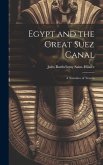This analysis of state policy under the last two Mamluk rulers enables modern readers to observe a pivotal era in the history of Egypt and southwest Asia. Beset with external threats and internal dissent, the Mamluk Sultanate confronted profound challenges in its waning years. The author depicts how each monarch differed in his responses to the bureaucratic and military dilemmas he faced. al-Ashraf Qaytbay remained a stalwart conservator of traditional soldierly values. He would be revered by later generations as an exemplary officer and pious believer. Qansuh al-Ghawri, however, exhibited little regard for hallowed traditions, military or religious. Burdened by irremedial bankruptcy and endemic sedition, he initiated the first steps toward innovation since the architects of the Mamluk system founded the regime during the thirteenth century. The contrasting styles of these two sultans is examined in the context of the foreign and domestic events that shaped their reigns. The strategies that they devised to deal with endemic crises decisively influenced the nature of bureaucratic procedures in Egypt, influence that is still evident in its government today.
Hinweis: Dieser Artikel kann nur an eine deutsche Lieferadresse ausgeliefert werden.
Hinweis: Dieser Artikel kann nur an eine deutsche Lieferadresse ausgeliefert werden.







